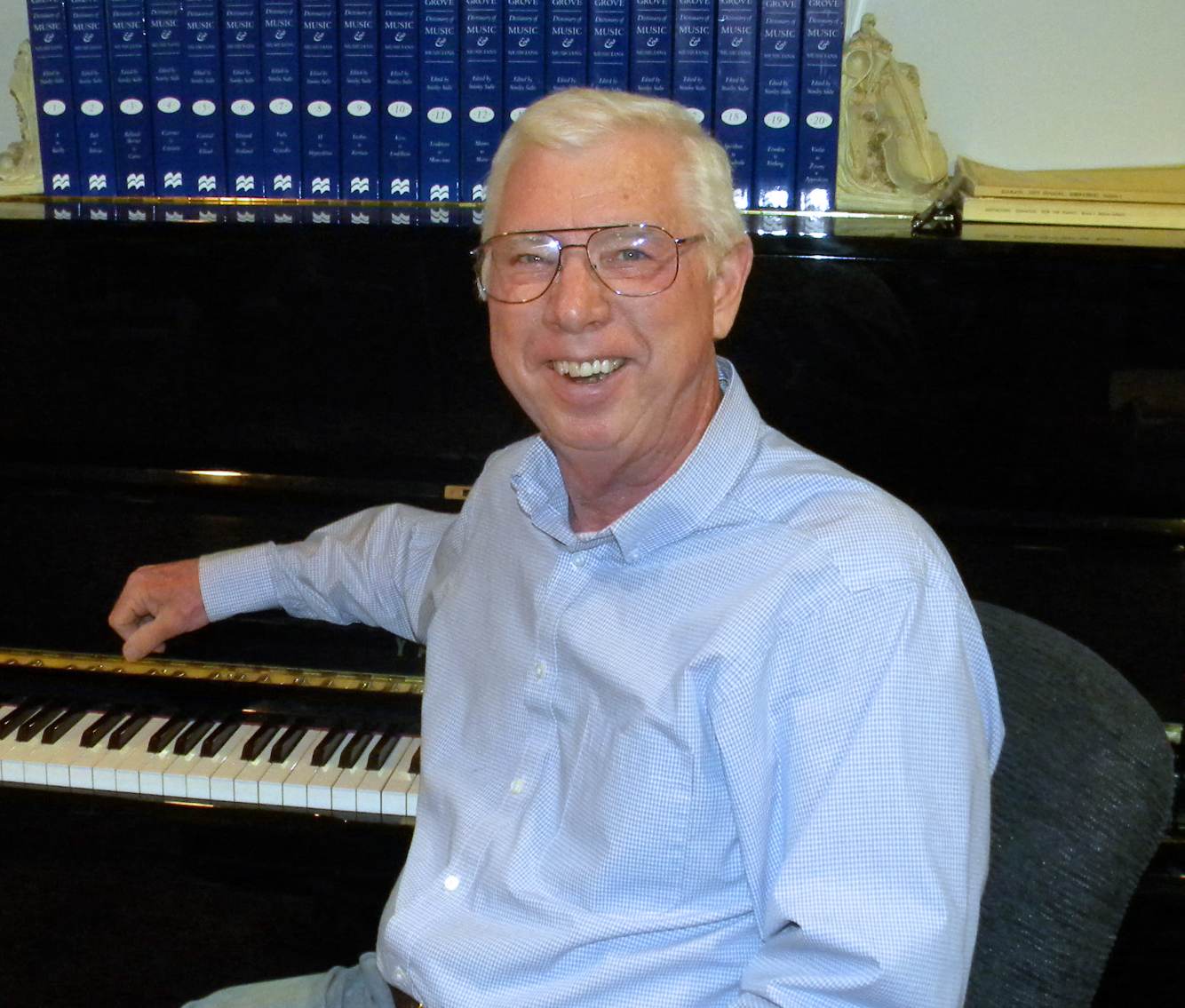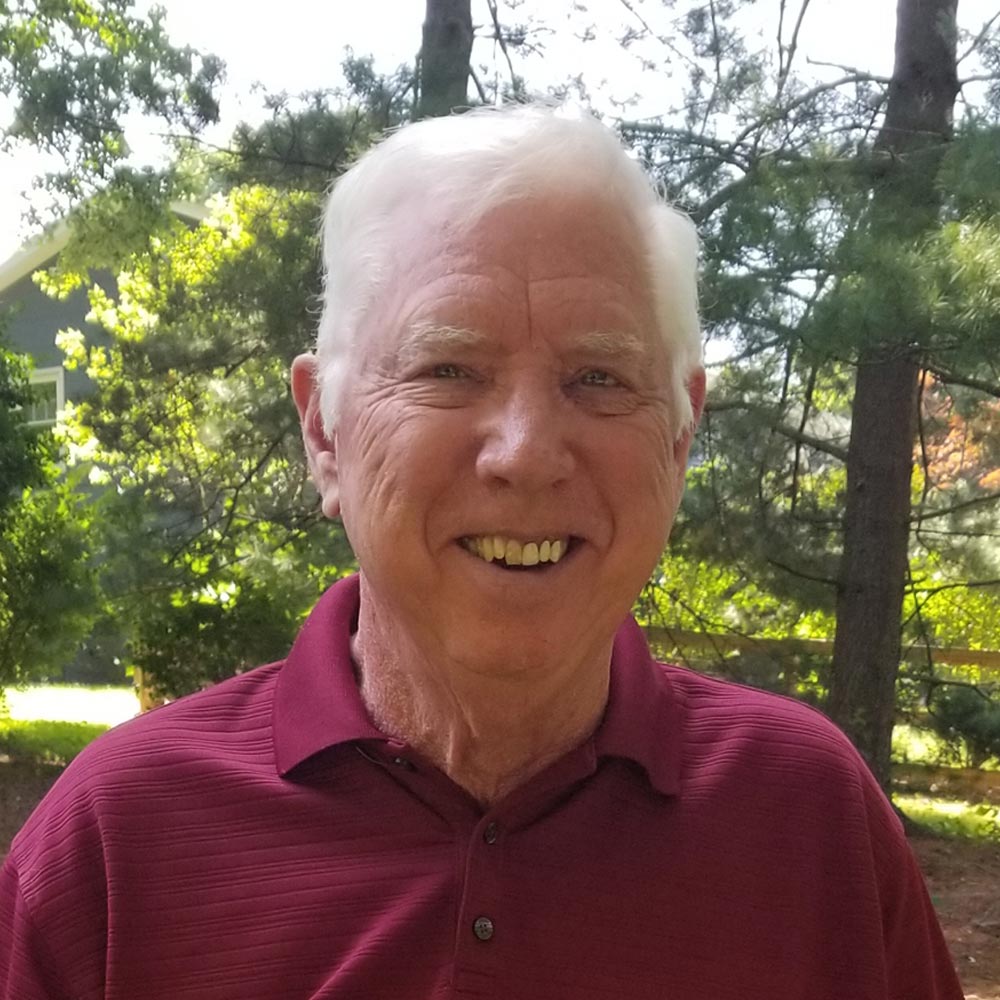
Garth Baxter makes his PARMA debut with ASK THE MOON — an album exploring the human condition and the pursuit of light in darkness.
Today, Baxter is our next featured artist in “The Inside Story,” a blog series exploring the inner workings and personalities of our artists. Read on to see what kept Baxter off the Boston Celtics…
Who was your first favorite artist(s) growing up?
My older brother was a great influence on me. His tastes were highly eclectic and so mine followed suit. We listened to classical music, jazz, and folk music, as well as rock. I don’t think I had a favorite artist per se. However, I did make lists occasionally of my favorite composers. Prokofiev was always near the top of the list.
When did you realize that you wanted to be a composer?
I knew very early in my life I wanted to be a composer. I wrote my first pieces when I was quite young, maybe 8 or 9 years old. My brother was a fine violinist so I wrote my first pieces for him (some caprices). Although I played sports through high school, I never lost interest in composing. My favorite sport was basketball. I remember at one time thinking I wanted either to be the next Bill Sharman (a basketball player with the Celtics) or the next Beethoven. It became evident that although I could shoot fairly well I wasn’t any good on defense. So I scratched basketball off my list after my freshman year in college.
What was your most unusual performance, or the most embarrassing thing that happened to you during a performance?
I wrote a guitar quartet many years ago for a university teacher’s ensembles to play. At the first performance of the piece one of the guitarists realized upon going to page two (of 7 pages) that he didn’t have page two! He ended up not playing for sections of the piece and then trying to guess where the other performers were so he could “rejoin” them. He wasn’t successful. The others followed his example by becoming lost trying to figure out what he was doing. They did their best but it ended up sounding like a free-wheeling 10 minutes of avant-garde improv. When they finished they acknowledged me as the composer. I did stand but I didn’t really want to. What they played was nothing like what I had written.
What is your guilty pleasure?
Life is filled with a multitude of pleasures, both simple and complex. I try to focus on the joy. Life is too short for guilt.
In the event of a zombie apocalypse, what are the three things you absolutely can’t live without?
Love, music, and books.
If you could do any job in the world and make a living at it, what would that be?
I am doing that job – composing classical music. Making a living at it is the fantasy part!!
If you could spend creative time anywhere in the world, where would it be? And why?
I live in a rural part of central Maryland. The beauty and the calm surroundings are ideal. I do love bustling cities like Paris or New York City, but I am not sure they would be the most inspirational locales for me. I did live in Los Angeles for about 20 years. I love the ocean, particularly the wild coasts of Maine. I think I would love to have a studio with a grand window looking out on the sea so I could watch the waves crashing against the rocks below. But then I might spend the entire day admiring the beauty and get nothing done!!
What would you say to an artist performing your work that nobody else knows?
For the most part I love hearing performers interpret my music without my input. I am often times pleasantly surprised to find that he/she saw something a tad differently from what I had in mind.
What people might find interesting is that while I am writing a piece, it absolutely dominates my life. No matter what I am doing, I always have the music going through my head. I think this is where I find some of my inspiration – the combination of this new music going on in my head and life going on all around me for the weeks or months that it takes to compose a piece. However, after the work is finished and I begin work on a new piece, very quickly the old one is gone. So much so, that after a few months I have very little recollection of writing the piece. Sometimes when a melody from one of these “older” pieces floats through my head, it takes me a little while before I remember that I wrote that tune!! Maybe that is why I am happy to hear a performer’s interpretation of my works that may differ from my own.
What was your favorite musical moment on the album?
Writing music is such a personal endeavor for me that each piece very special. Some of the songs on this recording are more emotionally charged than others. The heartbreaking ending of “Lament” never fails to bring tears to my eyes. Jessica Satava did such a marvelous job bringing out the emotions on this song. But I guess I do have favorites. Travel is one of my favorite songs. To be honest I am not sure why. The poem and the music seem to be quite simple, yet they awaken within me something deeply complex that is hard to explain.
Was there a piece on your album that you found more difficult to compose than the others?
The opening song on the album, “Nights Without Sleep,” was probably the most challenging for me. It took years to complete. I had found two poems by Sara Teasdale that really appealed to me: “Nights Without Sleep” and “A Little While.” Probably around 25 years ago I wrote music to both of these poems. However, I wasn’t crazy about either of them. But then, after a number of years, I came back to the songs. I did a lot of rewriting on “Nights Without Sleep.” Then I started working again on “A Little While.” I realized there was only one line that really spoke to me. So I decided that rather than composing the second song, I would just incorporate that line into “Nights Without Sleep.” I closed the piece with that line; it fit perfectly.
What does this album mean to you personally?
This project allows me to share my music with more people in a professional production. I appreciated the opportunity to work closely with the talented artists on this recording. They represent top performers and dedicated artists in their crafts.
Is there a specific feeling you want listeners to tune into when hearing your work?
I hope the listener will let the music speak to him or her and find what resonates within themselves.

Composer Garth Baxter is noted for his modern traditionalist style of writing. He combines the traditions of form and clear melodic writing with contemporary approaches to harmony and other elements. He is recognized as one of the preeminent composers of art songs and has been described as an unabashed lyrical, tonal composer.
